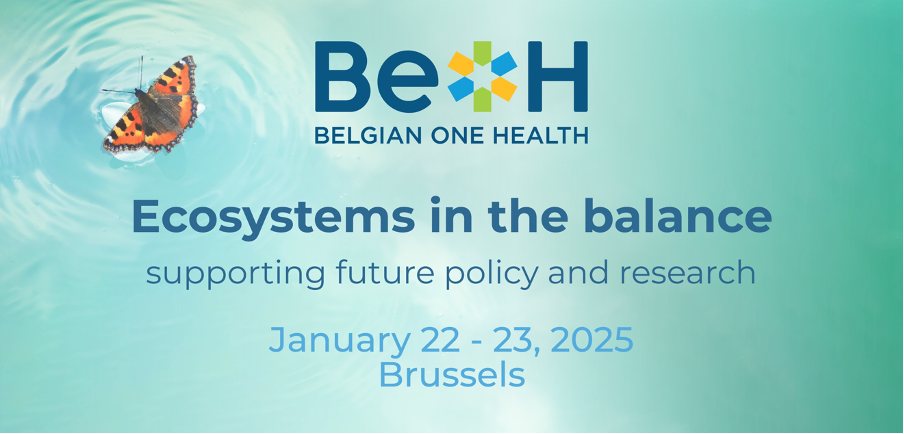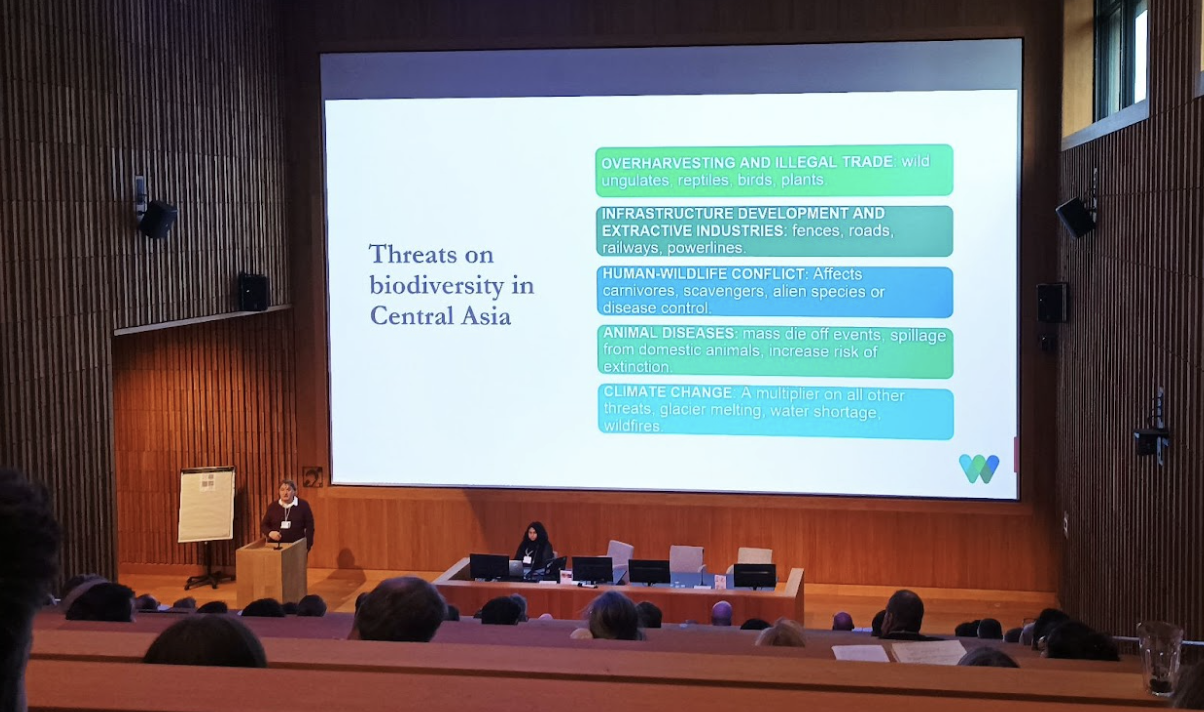 Belgian One Health Conference
Belgian One Health Conference
The Wildlife Conservation Society (WCS) participated in a Belgian One Health Conference “Ecosystems in the Balance: Supporting Future Policy & Research” hosted by the Belgian One Health network, the Belgian Biodiversity Platform, and Sciensano on 22-23 January 2025 in Brussels. The event focused on interdisciplinary approaches to ecosystem, animal, and human health issues, with a particular focus on the role of environmental factors in influencing the emergence of infectious diseases. It explored possible pathways of disease emergence and discussed solutions for prevention, early warning mechanisms, and effective preparedness strategies. Read more
Dr. Stephane Ostrowski, WCS Senior Advisor of Temperate Asia Region & Associate Director of Wildlife Health Program, presented on “One Health in Action: Balancing Livelihoods, Livestock, and Ecosystems Health in Central Asia”. He highlighted that the ongoing and unprecedented decline in biodiversity is having a profound impact on the risk of transmission of infectious diseases affecting not only humans, but also animals and plants.
One of the primary drivers of biodiversity loss is the way people utilize their environment, including the overexploitation of natural resources and the widespread conversion of land for agricultural and development purposes. Reducing the risk of disease emergence, particularly for zoonosis, relies in part on the conservation and restoration of ecosystems as well as the promotion of sustainable use of natural resources and the adoption of sustainable and safe agricultural practices.
 WCS’s Dr. Stephane Ostrowski presenting at the 2025 Belgian One Health Conference . Photo Credit © Jérome Vandebos
WCS’s Dr. Stephane Ostrowski presenting at the 2025 Belgian One Health Conference . Photo Credit © Jérome Vandebos
Dr. Ostrowski used the examples of two field projects implemented by WCS in key biodiversity areas in northeastern Afghanistan and central Tajikistan, to highlight how promoting the sustainable use of natural resources supports the conservation and restoration of ecosystems and reduces disease risks. The Central Asian Mountains Biodiversity Hotspot spans approximately 860,000 km2 across seven countries where health systems are often poorly managed and supervised, lack accountability, and where economic development tends to be prioritized over environmental conservation.
Home to approximately 70 million people, the region is experiencing rapid and profound transformation, including the significant expansion of extensive livestock farming. This is exerting immense pressure on the region’s natural resources and unique biodiversity, threatening valuable ecosystems. Engagement with communities and local economic actors, efforts to promote sustainable development, and in Central Asia, to generate sustainable income independent of livestock farming can play a leading role in protecting and restoring ecosystems of this biodiversity hotspot while improving the health and well-being of local populations. Check out his full presentation.
Learn more 👉 oneworldonehealth.wcs.org